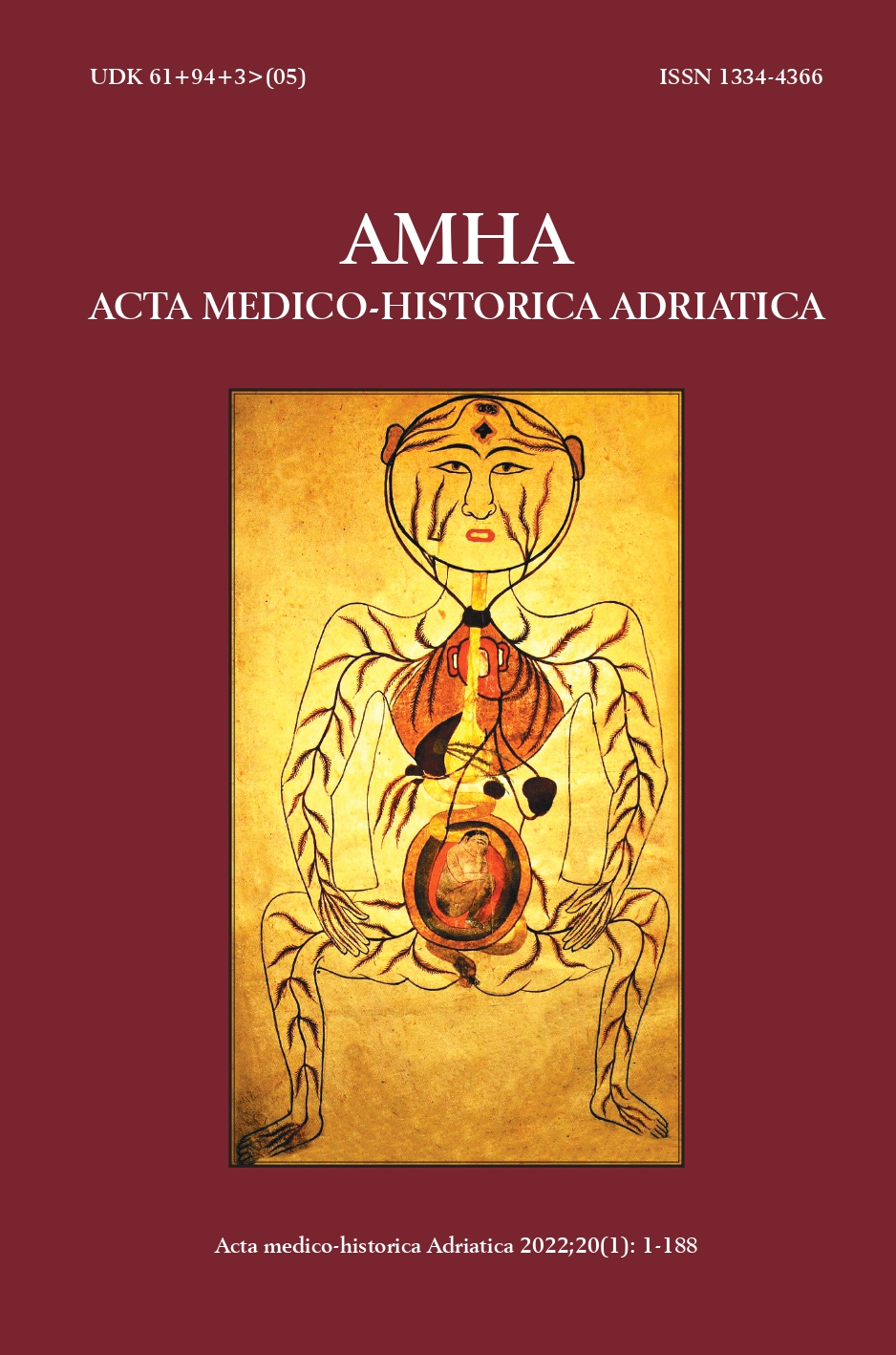PRILOG PROUČAVANJU POČETAKA MEDICINE NARODNOG ZDRAVLJA OD 1912. DO 1919. S NAGLASKOM NA DJELOVANJE ANDRIJE ŠTAMPARA
Keywords:
public health medicine, Andrija Štampar, epidemic, vaccination, history of public healthAbstract
https://doi.org/10.31952/amha.20.1.3
The paper examines the forerunner of the development of public health medicine since 1912, as well as the actions of Andrija Štampar as a municipal physician in the Nova Gradiška Posavina region from 1913 to 1918. The predecessors of public health medicine are considered in the context of the emergence of societies for the protection of public health in Belgrade and Zagreb, as well as the connection between Andrija Štampar and these societies. Analysing the archival material of the Croatian State Archive, laws, journals, and newspapers, the paper attempts to link the theoretical phase of Andrija Štampar’s work with the practical phase, beginning in 1912 with his work in Karlovac and his relocation to Nova Gradiška in 1913. The paper notes that Štampar had already laid the foundation for many of his future ideas at this stage, as can be observed in the example of his reflections on eugenics, which he has defended since 1912. His experiences of rehabilitation efforts after the epidemics of cholera and smallpox in the Nova Gradiška Posavina region and his work at the Red Cross military hospital in Nova Gradiška influenced the formation of the basic principles of social medicine and public health. Special attention was paid to the set of preventive and epidemiological measures that Štampar implemented during the 1913 - 1916 epidemics. He regarded them as “perfect”, and, ten years later, introduced them into the postulates of public health medicine. Andrija Štampar conceived the main part of his ideas under the influence of theoretical knowledge and practice until 1918, and thanks to his ability to perceive circumstances and opportunities within the newly created legal framework and with the support of Rockefeller donations, he turned them into a functional health policy, which has been implemented at the School of Public Health and the Institute of Hygiene since 1926.


